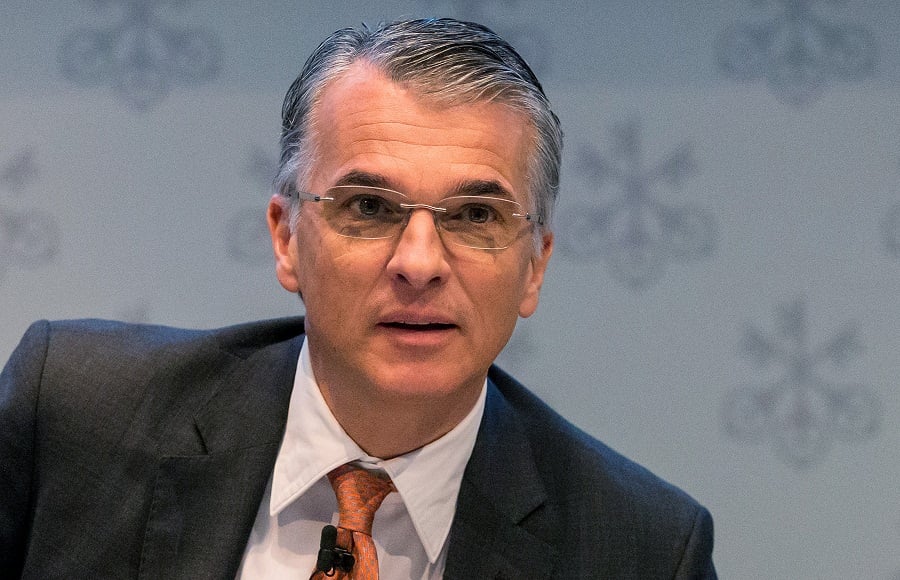

Swiss Finance Minister Karin Keller-Sutter said she was concerned about the level of compensation paid out to executives such as Sergio Ermotti, who was brought back to run UBS Group a year ago and oversee the rescue of Credit Suisse.
Ermotti, who has been leading one of the most complex bank integrations since the financial crisis, received total compensation of around $16 million for his first nine months on the job, making him the highest-paid European bank chief. While it’s up to shareholders to sign off on such amounts, they exceed “the imagination of any normal citizen,” Keller-Sutter said during a press conference.
“It does concern me,” she said, adding that she was expressing her personal views and referring to a broader trend at companies, not just UBS and its CEO. “In the last couple of years, this has led to an alienation between companies and the people.”
On Wednesday, the Swiss government unveiled a sweeping set of measures to reform bank oversight in response to the country’s most severe financial crisis in over a decade, addressing a weakness that helped accelerate Credit Suisse’s demise last year. The proposals effectively single out UBS as Switzerland’s sole globally systemic lender, while stopping short of giving the regulator the power to fine lenders.
UBS last month announced that it cut its overall bonus pool for 2023 by 14% despite a record annual profit driven by the acquisition of Credit Suisse. The bonus allocation was a reflection of the impact from challenging operating conditions and market volatility, the bank said.
As part of the proposals unveiled Wednesday, the government said it will consider potential clawbacks for bonuses. Shareholders of UBS are set to vote on executives’ compensation later this month.

Relationships are key to our business but advisors are often slow to engage in specific activities designed to foster them.

Whichever path you go down, act now while you're still in control.

Pro-bitcoin professionals, however, say the cryptocurrency has ushered in change.

“LPL has evolved significantly over the last decade and still wants to scale up,” says one industry executive.

Survey findings from the Nationwide Retirement Institute offers pearls of planning wisdom from 60- to 65-year-olds, as well as insights into concerns.
Streamline your outreach with Aidentified's AI-driven solutions
This season’s market volatility: Positioning for rate relief, income growth and the AI rebound
